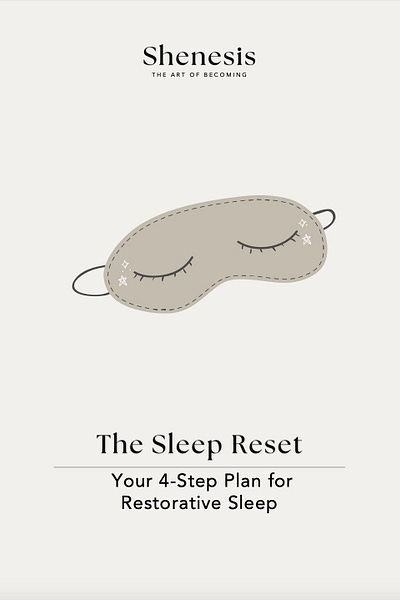Brain Fog: Is It Just in Your Head?
What’s clouding your mind? The truth about brain fog and how to clear it
First things first. This is the 20th edition of Shenmag! 🍰 No milestone is too small to celebrate, and I couldn’t have done it without you. If you’ve been here since the start, thank you. If you’re new, welcome. This is the perfect time to dive in. Here’s to the next 20! 🥳
The Brain Fog Phenomenon
"Brain fog" has exploded into popular culture, mentioned in menopause forums, stress management guides, and long COVID discussions. But this vague term often obscures more than it explains.
I see it everywhere: online articles, bestselling books, even peer-reviewed journals. Its ubiquity makes me wonder: Am I missing something by not experiencing it? Or is this a classic case of medicalisation masquerading as awareness?
What people describe as brain fog typically includes:
Forgetfulness
Mental fatigue
Difficulty concentrating
But here’s the critical question: Is this a legitimate medical concern or an oversimplified label masking deeper issues?
Let’s unpack this phenomenon to separate fact from fiction and explore how you can address its root causes.

Defining the Undefined
Brain fog is not a medical diagnosis but a subjective experience.
Clinicians sometimes use terms like:
Mild cognitive impairment (when measurable)
Clouding of consciousness (in specific medical contexts)
Cognitive fatigue (a more precise description)
Despite its prevalence in popular discussions, brain fog lacks a formal definition in medical literature.
It doesn’t appear in diagnostic manuals like the International Classification of Diseases (ICD) or the Diagnostic and Statistical Manual of Mental Disorders (DSM).
Instead, it serves as a catch-all term for cognitive symptoms that vary widely between individuals.
What patients report:
Trouble focusing at work
Walking into rooms and forgetting why
That "hazy" feeling after poor sleep
Yet these symptoms span everything from nutritional deficiencies to serious neurological conditions.
The vagueness concerns me, both as a brain health advocate and as a woman going through perimenopause.
Personal note: When I’ve felt mentally "off," I have been able to trace it to specific causes, like sleepless nights, skipped workouts, stress, even less than flawless diet. This doesn’t invalidate others’ experiences but highlights the importance of precision.
Why the Term Fails Us
The problem isn’t the symptoms, it’s the label. "Brain fog" gets applied to:
Menopause (oestrogen fluctuations)
Chronic fatigue syndrome (documented cognitive dysfunction)
Long COVID (emerging research shows microvascular changes)
Everyday stress and poor sleep
This overgeneralisation risks:
Missed diagnoses (thyroid issues, autoimmune conditions)
Unnecessary anxiety (pathologising normal fatigue)
Ineffective treatment (treating the label, not the cause)
What Causes Brain Fog?
While brain fog itself is not a diagnosis, many of its symptoms can be traced to identifiable causes. Addressing these root issues can often alleviate cognitive discomfort:
Sleep Deprivation — Poor sleep is one of the most common contributors to cognitive difficulties. Research shows that insufficient sleep impairs memory, attention, and problem-solving skills. Chronic sleep deprivation can even increase the risk of neurodegenerative diseases like Alzheimer’s1.
Vitamin Deficiencies — Deficiencies in key nutrients like vitamin B12, folate, and vitamin D can lead to confusion, forgetfulness, and difficulty concentrating:
Vitamin B12 is essential for nerve function and red blood cell production; its deficiency is linked to cognitive decline.
Low levels of vitamin D have been associated with slower information processing and poorer memory2.
Diet — A diet high in sugar and refined carbs can impair brain function by promoting inflammation and oxidative stress, but:
Omega-3 fatty acids (found in fatty fish) support brain health.
Antioxidants (in berries and leafy greens) reduce oxidative damage3.
Stress and Anxiety — Chronic stress, which we all experience at some point, elevates cortisol levels, disrupting memory and focus over time. Anxiety further compounds this by impairing the brain’s ability to process information efficiently4.
Hormonal Fluctuations — Oestrogen plays a critical role in brain function by supporting neurotransmitter activity and protecting against inflammation:
During perimenopause and menopause, declining oestrogen levels can lead to temporary cognitive issues like memory lapses and reduced focus.
These symptoms are often manageable through lifestyle changes or hormone replacement therapy (HRT)5.
Dehydration — Even mild dehydration can impair cognitive performance by reducing blood flow to the brain. Symptoms include confusion, poor concentration, and mental fatigue6.
The Problem With Labels
While it’s tempting to use “brain fog” as shorthand for cognitive struggles, doing so may oversimplify complex health issues:
Overgeneralisation: Lumping diverse symptoms under one term risks ignoring their unique underlying causes.
Self-Diagnosis: People may misattribute serious conditions (e.g., hypothyroidism or depression) to “brain fog,” delaying proper treatment.
Cultural Narratives: The popularity of terms like brain fog may reflect sometimes stigmatising societal trends rather than scientific evidence.
A Better Approach: From Label to Solution
Instead of accepting “brain fog” as an inevitable part of life, focus on actionable strategies and try this diagnostic framework:
Track Your Triggers:
Use a symptom journal (Monitor and note sleep, meals, stress levels)Run Basic Tests:
Vitamin D & B12
Thyroid panel
Inflammatory markers
Targeted Interventions:
Prioritise quality sleep by maintaining consistent bedtimes and reducing screen time before bed.
Eat a nutrient-rich diet with plenty of omega-3s, antioxidants, and whole foods.
Manage stress through mindfulness practices like meditation or yoga.
Stay hydrated by drinking water throughout the day.
Consult a healthcare provider if symptoms persist to rule out underlying conditions like thyroid disorders or vitamin deficiencies.
The Bottom Line
Cognitive struggles are real, but "brain fog" is a misleading metaphor. Like "adrenal fatigue" or "leaky gut," it packages complex biology into a palatable but inaccurate story.
Feeling mentally sluggish is frustrating but it doesn’t have to define you. By addressing root causes such as sleep deprivation, poor diet, or hormonal changes, you can regain mental clarity and focus.
Rather than relying on vague labels, empower yourself with knowledge about your body’s needs. Because when it comes to your health, clarity beats confusion every time.
Your action plan:
Ditch the self-diagnosis
Investigate root causes
Implement targeted fixes
And remember:
Precision creates power. Vague labels create victims.
Related posts:
Upgrade to paid for:
All public posts and access to the full archive.
Quarterly Brain Health Workbooks: Actionable exercises for sharper focus & resilience.
Exclusive Welcome Call (FREE): A private 30-min session + Brain Health Assessment to kickstart your transformation.
Exclusive deep dives into my most powerful, science-backed brain health strategies.
If you liked this post, support Shenmag:
→ If this sparked something in you, give this post a like.
→ If you have a thought to share or just want to chime in, leave a comment.
→ And if it made you rethink something and you want to spread the word, restack.
Shenmag is more than a newsletter. It’s a conversation about ageing on our own terms. Every interaction helps it grow. Let’s rethink midlife. Redefine ageing. And rewrite what comes next.
Sleep-dependent learning and memory consolidation, Walker, M.P., & Stickgold, R., Neuron, 2010.
Homocysteine-lowering by B vitamins slows brain atrophy in mild cognitive impairment: a randomized controlled trial, Smith, A.D., et al., PLoS One (Public Library of Science), 2010.
Brain foods: the effects of nutrients on brain function, Gómez-Pinilla, F., Nature Reviews Neuroscience, 2008.
Stress and cognitive function, McEwen, B.S., & Sapolsky, R.M., Current Opinion in Neurobiology, 1995.
Brain aging modulates the neuroprotective effects of estrogen on selective aspects of cognition in women: A critical review, Sherwin, B.B., & Henry, J.F., Frontiers in Neuroendocrinology, 2008.
The effect of the consumption of water on the memory and attention of children, Benton, D., & Burgess, N., Appetite, 2009.








I love the focus on finding root causes. Without that we are just spinning our wheels trying one thing after another and hoping it will work.
Great advice!